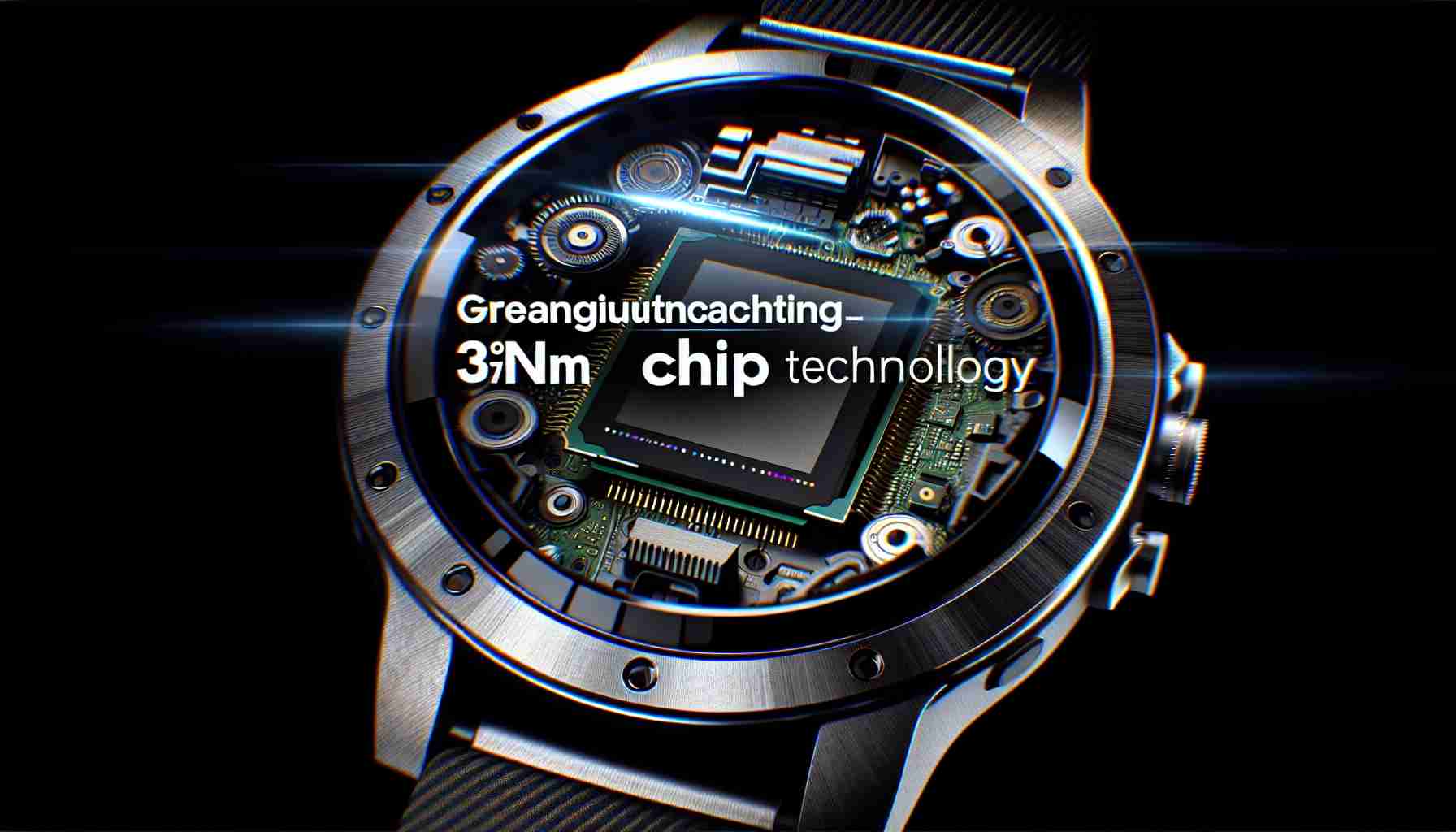Samsung’s Anticipated Product Launch
Samsung has set the tech world abuzz with confirmation of its Galaxy Unpacked event slated for early July 2024. High expectations are set for the premier of their latest innovations, including the Galaxy Watch 7, Galaxy Z Flip 6, and Galaxy Z Fold 6. Notably, the spotlight shines on the Galaxy Watch 7, anticipated to be the first Samsung device to harness the power of a 3nm Exynos processor.
A Leap in Processor Technology
Industry whispers have crystallized into concrete reports revealing the Galaxy Watch 7 will house the revolutionary Exynos W1000 processor. Born from Samsung Foundry’s cutting-edge third-generation 3nm process, this processor is highly anticipated to set a new standard for smartwatch capabilities. The reports suggest the Galaxy Watch 7 will not only deliver superior performance but also promise a significant 20% boost in power efficiency compared to its contemporaries.
Smartwatch Evolution and Global Debut
With an eye on pushing the boundaries of technology, Samsung appears to be leapfrogging from the 5nm Exynos W930 to the 3nm W1000, positioning this chip as the most advanced in the current wearable market. This upgrade comes at a time when competitors like Apple employ a 5nm chip in their high-end wearable offerings.
Strategic in its planning, Samsung has chosen July 10 for the Galaxy Unpacked event in Paris, aligning its massive product rollout with the fervor of the 2024 Paris Olympic Games. Anticipation also surrounds the Galaxy Z Flip 6 and Galaxy Z Fold 6, with leaks hinting at a revolutionary “wrinkle-free” foldable screen.
Further Developments and Features
In the realm of functionality, the Galaxy Watch 7 is rumored to be a giant leap forward with AI integration for more precise health monitoring, such as atrial fibrillation detection. This aligns with Samsung’s ambition to offer a more premium smartwatch experience. Also notable is the possible inclusion of a significantly larger battery, setting new benchmarks for the industry in terms of performance and battery life. Initiatives point toward a device that not only meets the current market’s demands but also shapes the future of wearable technology.
Advantages and Disadvantages of 3nm Chip Technology
Advantages:
1. **Enhanced Performance**: The transition to a 3nm chip in the Galaxy Watch 7 signifies a jump in processing capabilities that allows for more complex computations without significant battery drain.
2. **Increased Power Efficiency**: A 20% increase in power efficiency compared to older technologies translates into longer battery life and less frequent charging for users.
3. **Potential for More Features**: The efficiency and performance of 3nm chips can enable the addition of new features and applications in wearables that were previously not possible due to processing limitations.
4. **Competitive Edge**: Being first to market with such advances can position Samsung ahead of competitors like Apple in the smartwatch sector.
Disadvantages:
1. **Cost**: The development and production of more advanced chips often entail higher costs, which might translate into a more expensive final product for consumers.
2. **Development Challenges**: Producing 3nm chips is technically challenging, requiring advanced manufacturing processes and precision, which can lead to difficulties in achieving yield and scalability.
Key Challenges and Controversies
One of the key challenges associated with implementing 3nm chip technology in a smartwatch is the manufacturing complexity. The smaller the transistors, the more intricate and expensive the manufacturing process becomes. Ensuring that the chips can be mass-produced without defects or inefficiencies is also a hurdle.
In terms of controversies, there’s always the question of obsolescence and the environmental impact of rapidly advancing technology. As newer devices come out, older models become outdated quicker, potentially contributing to electronic waste.
Important Questions Answered
1. What is a 3nm chip? A 3nm chip refers to a semiconductor device with transistors that have a physical dimension of approximately three nanometers. It represents a smaller, more efficient technology compared to 5nm and 7nm chips.
2. Why is 3nm technology significant for Samsung’s Galaxy Watch 7? Adopting 3nm chip technology in the Galaxy Watch 7 can vastly improve performance and energy efficiency, potentially leading to advanced features and longer battery life.
3. How does the 3nm chip compare to Apple’s 5nm chip? The 3nm chip is expected to be more efficient and powerful than the 5nm chips currently used by Apple in its wearable devices, giving Samsung a competitive advantage.
For further information about Samsung’s products and technology advancements, you can visit their official website using this link: Samsung Official.
The source of the article is from the blog japan-pc.jp
